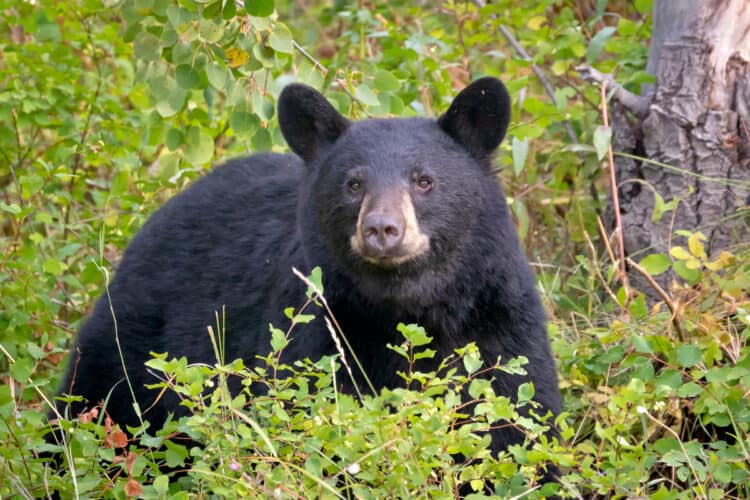What is Animal Labor?
Let’s start with speciesism. Speciesism, as defined by PETA, “is the belief that some animals’ lives and experiences are inferior to those of humans or other animals simply because they are members of a different species, and it underpins all the most widespread forms of animal abuse.”
Unpacking this a step further, Arnold Arluke and Clinton Sanders developed the sociozoologic scale by examining the relationship between human society and other animal species.
They discovered four common domains: “friends, tools, vermin, and demons.”
Friends or companion animals are awarded the most care and legal protections, while demons are awarded the least.
Tools or labor animals fall somewhere in between these two categories when it comes to the level of care and protection they receive because of their deemed usefulness to society.
To understand this concept better, think about rabbits. Sometimes they’re beloved companions and friends; sometimes they are cruelly used for labor or as tool, including when used as test subjects, as food, or for their fur or other body parts; sometimes they’re considered pests or vermin and killed for interfering with gardens, crops, and pastures.
The level of care and legal protection they are awarded is based on their relationship with human society and, therefore, where they fall on the sociozoologic scale.
Unfortunately, society still inhumanely exploits animals as tools and for labor in many ways.
1. Monkeys & Coconuts
In 2019, investigators from PETA Asia discovered monkeys being terribly mistreated in Thailand at several monkey-training facilities and eight farms. They observed the monkeys in visible distress being forced to gather coconuts – including for a major coconut milk producer in Thailand and global supplier, Chaokoh.
The same year, Thailand exported over 500,000 tons of coconuts, placing them as the third-largest exporter of coconuts worldwide.
In 2020, PETA Asia conducted additional investigations into the forced monkey labor occurring in Thailand due to the denial and dismissal of animal cruelty in the industry by Chaokoh and Thai Commerce Minister Jurin Laksanawisit.
PETA Asia found little to no progress made regarding animal welfare, nor purposeful actions taken to end forced monkey labor.
These investigations also found the monkeys living in unbearable conditions. These helpless animals showed signs of severe mental and physical distress as they were unable to perform normal behaviors, such as socializing and moving freely. They were observed spending extended periods of time detained in cramped cages or on restrictive chains with metal collars around their necks. Additionally, it was discovered that monkeys are trained in abusive ways, including having their teeth pulled if they attempt to defend themselves.
As of May 2021, PETA announced that several supermarkets have dopped Chaokoh products after their investigation, including Target, Costco, Albertsons, and Raley’s. However, there is still more work needing to be done to protect monkeys from forced labor and cruelty, especially since Chaokoh is still denying it occurs and shows no sign of stopping.
How Can You Help?
Don’t pay for forced monkey labor! Make sure you’re not financially supporting this cruel and exploitative industry practice through your purchases by avoiding Chaokoh and other coconut products from Thailand that use monkey labor. Instead, PETA suggests coconut products originating from places that do use monkey labor, such as Hawaii, Brazil, Colombia, India, and the Philippines.
Additionally, check out this list of coconut brands that do not support forced monkey labor.
Take action! Sign this petition urging Chaokoh to support businesses that do not use animal cruelty to obtain coconuts and sign this petition and demand that Walmart, the United States’ largest retailer, drop all Chaokoh products immediately!
2. Elephant Logging

Asian elephants are an endangered species profoundly threatened by human behavior, including through forced labor such as logging.
Elephant logging has been temporarily, partially, or entirely banned in most countries due to deforestation, but many illegal operations still exist. Regardless, the dangerous and excruciating labor takes a serious toll on individual elephants as well as entire populations. From loss of natural habitat to less opportunity to breed, the logging industry has caused elephant numbers to plummet.
Additionally, elephants used for labor are forced to endure torturous training at an extremely young age. This brutal training, often referred to as elephant crushing or phajaan, is practiced in order to break a baby elephant’s spirit. “Under phajaan, elephants are bound with ropes, confined in tight wooden structures, starved, and beaten repeatedly with bullhooks and other tools until their will is crushed,” National Geographic explains.
Furthermore, due to the global pandemic, many Asian elephants are “out of work” and at-risk of being forced to participate in illegal logging, made to beg on busy streets, partake in cruel tourist attractions, or sold in neighboring countries either alive or after being killed for their body parts.
Activists have been calling for the government to help create and sustain safe spaces for these elephants. Always travel responsibly and research animal welfare, activities, souvenirs, and meals before paying for animal cruelty.
Sign these petitions to help elephants:
- Tell Officials to Protect Elephants and Their Habitats
- Strengthen Animal Cruelty Laws in Sri Lanka to Protect Elephants
- Send Abused Elephants to Animal Sanctuaries
- Ban Ownership of Elephants
- Protect Elephants No Longer “Working” During Pandemic
3. Military Canines

For more than two decades, the State Department has sent bomb-sniffing dogs trained by the Bureau of Alcohol, Tobacco, Firearms, and Explosives to foreign countries, despite knowing the dogs were suffering from abuse and neglect.
However, after a whistleblower complaint regarding the inhumane treatment was reported by the State Department Office of the Inspector General, the U.S. pledged to temporarily pause sending more dogs to Egypt and Jordan.
“The program in Jordan is by far the largest recipient of U.S.-trained dogs, but the department could not provide detailed information about programs in nine other countries…The exact numbers of dogs active in those other countries – Bahrain, Egypt, Indonesia, Lebanon, Mexico, Morocco, Nepal, Oman, and Thailand – were unclear because officials provided ‘insufficient and contradictory documentation,’ the IG said. Dogs were also provided to the Dominican Republic and Afghanistan, but officials provided the IG no data on those animals and said the program ‘does not maintain documents related to the welfare of dogs in Afghanistan.,’” reported Chad Garland from Military News.

Overworked and underfed, the dogs were found emaciated, without proper veterinarian care, infested with fleas, and covered in wounds.
“It costs $640,000 to send 10 canine teams, each team comprised of a dog and its handler, abroad for a 30-day training period, the report said. An additional million dollars or so is spent annually for vets and assistants. State Department officials have been criticized for failing to protect the animals, waiting until after a whistleblower’s complaint and the inspector general’s report,” stated Tracy Wilkinson from the L.A. Times.
The State Department’s solution? Sending dogs with a friendlier appearance, such as Labradors. Despite halting the deployment of dogs to Egypt and Jordan, the State Department does not plan to stop sending dogs elsewhere.
Call your representatives and voice your concerns!
4. Social Media
Despicably, animal cruelty is rampant on social media with YouTube noting a significant increase in the popularity of inhumane videos harming animals, namely “staged animal rescues.”
These cruel videos include content of dogs being tied to railway tracks, animals being strangled by snakes, a cat being buried alive, and more.
Animals are being cruelly exploited in this way for monetary gain by YouTubers. “These videos have been a boon for its creators too, often receiving millions of views at a time. The users posting them get hundreds of thousands of subscribers, resulting in a good chunk of consistent ad revenue from YouTube too,” explains Tony Tran from Futurism.
YouTube has not yet disclosed how they plan to handle this issue.
You can help these vulnerable animals by refusing to watch, like, or share the content. Always report any and all animal abuse that you see online! Sign this petition to encourage YouTube to take animal abuse and torture videos off of the site!
5. Transportation & Tourism
Large animals such as horses, donkeys, and camels are often used as transportation and tourist attractions. These animals are often forced to endure the weight of carriages, people, luggage, and more through dangerous, rugged terrain or dangerous, busy city streets. PETA warns, “You may see signs at tourist destinations asserting high animal-welfare standards, but they’re false and exist to placate tourists.”
Oftentimes, these innocent animals also suffer from injuries, distress, fatal accidents, extreme temperatures, dehydration, abuse, and neglect.
Concerned citizens can make a difference – as witnessed in a number of cities where residents have helped ban horse-drawn carriages. Urge your community and local officials to do the same. And if you want to avoid paying for or contributing to animal maltreatment, then always avoid participating in these cruel activities. Sign this petition to urge popular tourist cities to ban horse-drawn carriages on their streets!
With cruelty-free alternatives available for labor, tourism, transportation, and more, then why not choose those options? It is my hope that as society continues to grow in its understanding of animal sentience, and our relationship to other species, then together we will no longer tolerate forced animal suffering. Let’s grow together! Spread the word and be the voice for these animals. Always choose to live cruelty-free. I’ll leave you with this quote from Jeremy Bentham (1789):
“The question is not, Can they reason?, nor Can they talk? but, Can they suffer? Why should the law refuse its protection to any sensitive being?”
This article was first published by OneGreenPlanet on 1 June 2021. Lead Image Source: Tony Myshlyaev/Shutterstock.
Wildlife also needs your support
Support ‘Fighting for Wildlife’ by donating as little as $1 – It only takes a minute. Thank you.







Leave a Reply